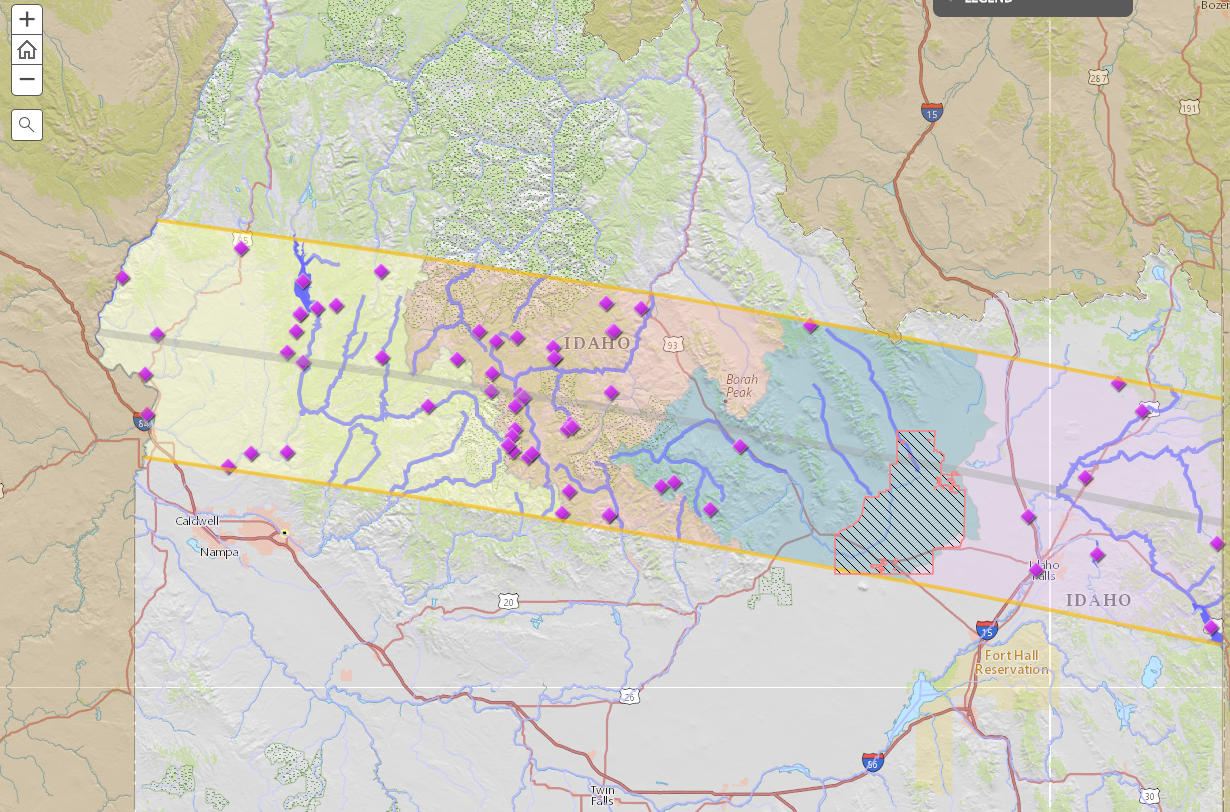Welcome to Idaho, center of Eclipse-o-Mania. Or Eclipse-o-Palooza. That last one might be trademarked, but I’ll risk it.
Here on the sprawling Trout Media campus in Idaho Falls (OK … it’s the corner bedroom in the back of the house, but I do have a microwave and a poster of Lee Corso on the wall), we’re anxiously awaiting the total eclipse scheduled to completely darken our skies for about two minutes the morning of Aug. 21.
And we’re not the only ones. My little town is scheduling a four-day music festival to coincide with the lunar-solar cage match, and all throughout the path of the eclipse, big things are set to happen. The Washington Post predicts the eclipse will be the most photographed, videographed and celebrated event in human history.
The Idaho Department of Fish and Game, however, has some ideas for those visiting eastern Idaho, where the likelihood of clear skies for the event is the best in the country. Go fishing.
The IDFG interactive “Fish the Eclipse” map is genius. It shows visitors where to wet a line while the moon interrupts the sun’s daily business on Aug. 21. With so many visitors expected to be in the area, getting away from the crowds will be a challenge. But, as someone who knows Idaho pretty well, the interactive map is a pretty good place to start. But first, you need to start with a fishing license.
Of course, in order to sustain fishing in Idaho and all across America, we need consistent protections for source-water streams and lakes. The short 30-day comment period on the Trump administration’s planned repeal of the Clean Water Rule is now open, and we need all the help we can get if we’re to keep this rule, and the protections it offers to headwater streams, intact. Comment. Share. Everybody lives downstream of these waters, and their health impacts ours.
From one very real threat to fishing and the health of our wild places to another: The war on public lands continues in D.C., but anglers and hunters aren’t taking this offense lying down. Our friends and Backcountry Hunters and Anglers have joined with TU and other sportsmen’s conservation groups to beat back a host of bad bills, both federally and in statehouses all over America. The notion that selling public lands or transferring them to states (where they will most likely be sold) doesn’t sit well with sportsmen who depend on access to large swaths of public lands for their pastimes. Kudos to BHA for landing this great feature in Men’s Journal—this proves that sportsmen and women are the tip of the spear in this effort to keep America’s birthright intact.
— Chris Hunt



